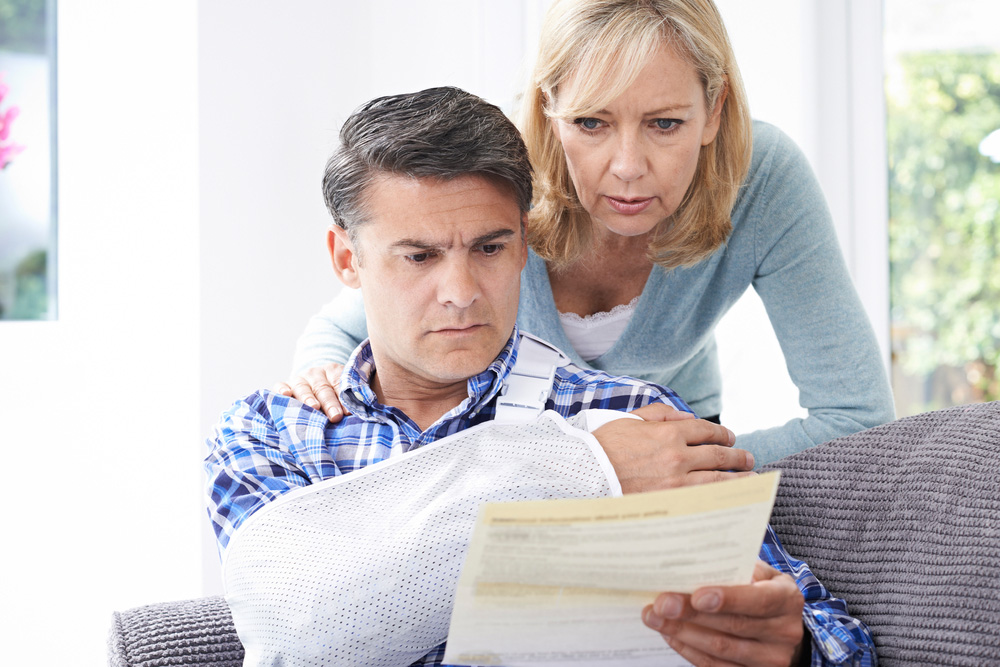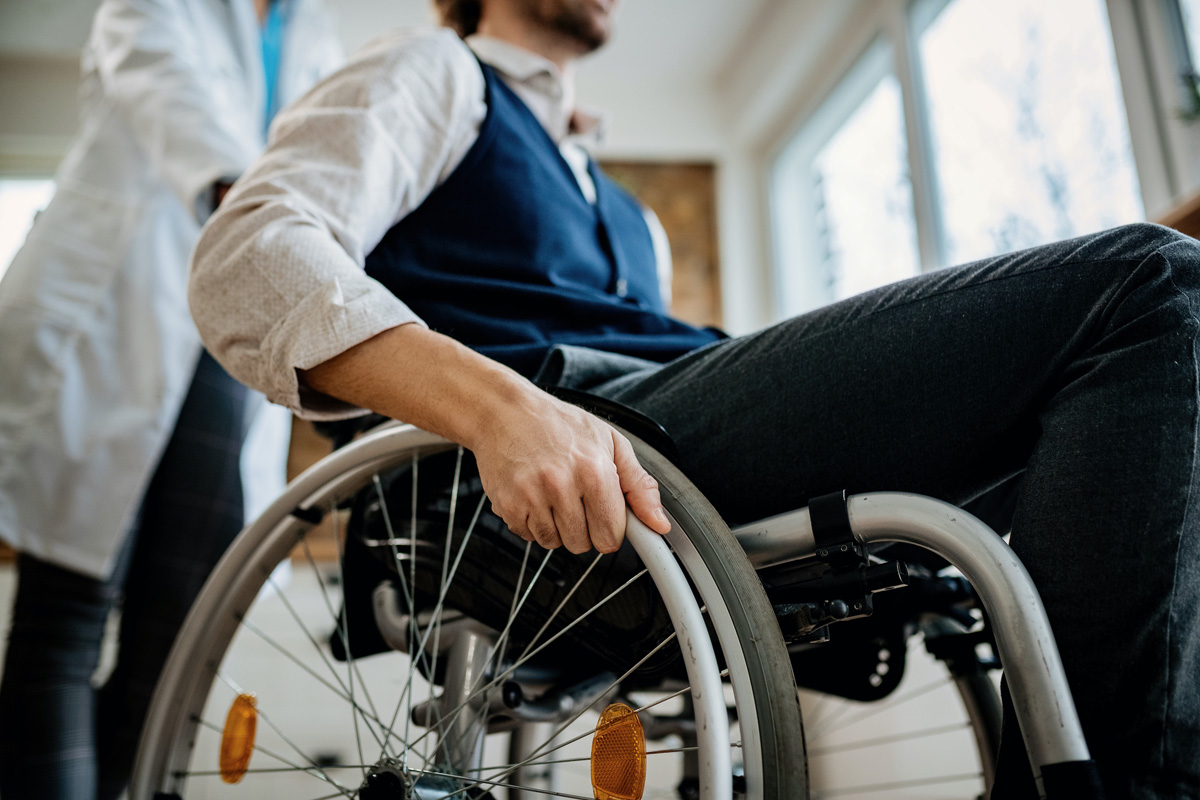List of Personal Injury Compensation & Damages Available in a Lawsuit
If your injuries are the result of another person’s negligence, Keith Williams Law Group will obtain the full amount of compensation you deserve for:
Your economic damages
Economic damages are compensation you will receive for your measurable monetary losses. They include:
1Current medical bills
Even if the person who injured you is clearly at fault, he or she doesn’t have to pay your medical bills as they come in. Same goes for insurance companies: they won’t pay your medical bills directly to the hospital or doctors. They only pay you, the claimant, when and if there is a settlement. This can take months or even years. Meanwhile, unpaid bills can stack up, go into collection and affect your credit negatively.

2Future treatments
Depending on the severity of your injuries, you may need more care over time. This means more bills. If you’re left with physical or mental impairment, you may want to do vocational rehabilitation (VR) to find a new job or any other occupation. As VR requires input from a range of health care professionals and other non-medical disciplines, it usually comes at great cost.
3Out of pocket costs
They’re your expenses for medical care that aren’t reimbursed by your health insurance (deductibles, coinsurance, and copayments for covered services) and all costs for services that aren’t covered.
4Lost wages
Lost wages are the income you would have earned by going to work if you had not been injured. For instance, if you miss work for a month because of an auto accident, lost wages are the money you would have earned by working for that month. Obviously, the longer your recovery time, the more income you lose.
5Loss of earning capacity (LOEC)
It’s the difference between your capacity to earn income before your accident injury, and your actual capacity to earn income after your injury. Your LOEC is determined on many factors: your injury, the resulting disability, your potential for rehabilitation, your age, etc.
6Household services
If you’re lying on a hospital bed, you cannot pickup your children from school, you may need a babysitter. If you’re paralyzed from the waist down, you cannot clean your windows. Maintenance, cooking, grocery shopping, budgeting: any activity performed by a caregiver for you comes at a price.
Your non-economic damages
Non-economic damages is compensation cover for the less quantifiable and more personal effects of your accident and resulting injuries.
1Physical disabilities
3 types of disability often result from accidents, ranging in severity:
- Temporary disabilities:
Injuries that impair you for a short time, but you will recover completely from them. Examples: minor whiplash, broken bones, strained muscles. Although temporary, a broken arm may prevent you from working so you can still get miss wages compensation.
- Permanent partial disabilities:
They interfere with your work and personal life but do not completely prevent you from your regular activities. For example: back pain, partial loss of hearing or sight, torn rotator cuff, etc.Not only can partial disabilities require you to take time off for treatment, but they may also affect your career opportunities, which you should be compensated for.

- Permanent total disabilities:
They’re the most debilitating type and leave you unable to do any job. The most common in car and other auto accidents are:
– Traumatic brain injuries (TBIs)May cause memory issues, mood disorders, difficulties thinking, talking, reading, etc.
– Spinal cord injuries leading to partial or total paralysis.
– Crushed limbs and amputations.
– PTSD.
In those cases, injury settlements should reflect lifelong needs, both for loss of income and necessary ongoing medical care.
2Mental health issues
Accidents are traumatic events, often leading to long-term psychological injuries. A study
published in the American Journal of Psychiatry, found that 33% of car accident victims reported PTSD, general anxiety disorder, phobic travel anxiety, and depression at both 3-month and 1-year follow-up.
- PTSD: Post-traumatic stress disorder is the most common psychological consequence of car accident. Studies found that 22.5% of car accidents victims suffer from PTSD.
- GAD: General anxiety disorder is characterized by persistent and excessive worry about many things in the day to day life. As a psychiatric condition, it requires proper treatment.
- Hodophobia: phobic travel anxiety is an extreme, irrational and uncontrollable fear of travel. It can lead to avoidance behaviors of anything that may remind you of your accident: driving, riding in cars, even being around cars.
- Major depressive disorder: Often tied to the physical injuries and pain sustained during a car crash, depression can take the shape of general tiredness and lack of energy, feelings of guilt and worthlessness, lack of enjoyment and interest, dark thoughts, concentration issues, sleep disorders, eating disorders, etc. It may eventually lead to total withdrawal from society and suicide attempts.
3Emotional trauma
You may be scarred emotionally after an accident. Without classifying as a psychiatric disorders, emotional distress symptoms may deteriorate your life on a daily basis: irritability and sudden anger, mood swings, fearfulness, feelings of humiliation, uncontrollable crying, sleep issues and nightmares, loss of appetite, etc.
4Lost relationships
Love and intimacy are as precious as they are fragile. The physical or mental damage you suffered in a car accident can be severe to the point of transforming your relationship into obligation and resentment, destroying it in passing. If you require long-term care, your partner may not be able to deal with it. “For better or worse” is truly tested, often to the point of breaking.
This may occur because:
- You’re a different person after your accident: your emotional and mental state may be altered: mood swings, irrational anger, fear, sleep issues that interfere with the lifestyle you used to have.
- Your ability to provide has changed as you’re not able to work anymore.
- Your partner has to turn into a caregiver.
- Your partner cannot see past permanent scarring, amputation or disfigurement.
5Loss of consortium
As the spouse of a loved one injured or killed in an accident, you may file a loss of consortium claim. This means that, as a result of the accident, the person who was injured or killed cannot provide you with the same love, affection, companionship, comfort, society or sexual relations that were provided before.
6Pain & suffering
In a personal injury case, pain and suffering is the legal term for the physical and emotional stress you endured. It englobes all previous damage categories, including the injury itself, but also the aches, pain, temporary and permanent limitations of activity, potential shortening of life, depression, disfigurement, loss of relationship, loss of lifestyle, loss of enjoyment of life, etc.
The dollar value of damages for pain and suffering is subjective but can make a huge difference. The most common way to calculate pain and suffering value is the multiplier method: all actual damages are added up and the result is multiplied by a number, usually in-between 1.5 and 5. This number lies entirely on your attorney’s skills and performances.
Contact a Personal Injury Attorney to Receive the Maximum Compensation
The attorneys at Keith Williams Law Group are ready to assist you with any injury claim. Contact (615) 444-2900 for a free consultation.
